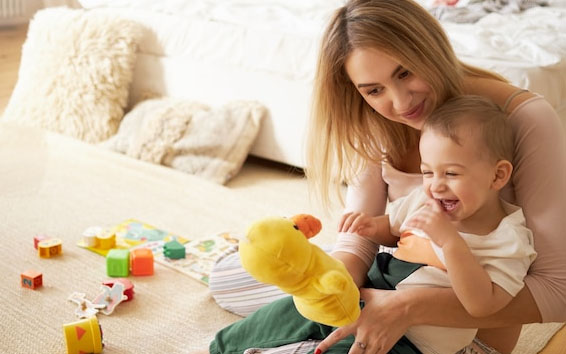Educational Services & Solutions
All our courses are approved in English and Spanish, both online and on-campus
CHILDCARE PROVIDER
This program will help students grasp a better understanding of the fundamentals of childcare as a provider. Students of this program will learn how to effectively care for infants, young children and older children in different situations such as when their parents or legal guardians are working away from home or any other reason. Students acquire the skills to be able to work one on one with a single child or a group of children in a secure, creative atmosphere.
Program Objectives
This program has been developed to provide the core skills and knowledge to successfully accomplish the tasks and duties of Childcare Provider. These duties include the caring of infants and children at various stages of development. This program has its focus on the development of cognitive, physical, social and creative skills without neglecting learning goals.

Occupational Objectives
Graduates of the program may qualify for an entry-level position as a Childcare Provider in a private academic environment.
Module Description:
Learning Development for Infants – Students will learn how to properly take care of infants. These aspects include sleeping routines, feeding, bathing as well as the instruction to providing the right stimulus for optimal progress in their development.
Learning Development for 2 and 3-Year-Old – Students will learn how to recognize and comprehend the major motor, intellectual, social, and emotional changes of a 2 or 3-year old child. Students will also learn how to successfully communicate with children to help ease frustration and misconduct.
Learning Development for Preschool Children – Students will learn how to create a learning atmosphere for preschool-aged children which promotes educational learning and helps develop social skills.
Emotional and Self-Development – Students will learn how to provide development in the physical, emotional, and social development areas of young children. Students will also learn how to support the development of social awareness and communication skills in young children to relieve stressful situations and misbehavior.
Social, Physical and Cognitive Development – Students will learn how to establish an environment that promotes social, physical and cognitive growth in young children. This may include but not limited to learning devices, toys and equipment that promotes child development.
Language and Creative Development – Students will learn how to create a learning environment that encourages the learning of language and the creativity of a young child and how it aids their cognitive growth.
Learning Through Observation – Students will learn how to create a learning atmosphere that promotes positive learning by observation. Students will also learn how to use effective creativity through the use of visual aids and simple communication with young children.
Families and Communities – Students will learn how to have a better understanding of the needs of working families and communities, and also learn how to adapt to specific care needs such as scheduling, agespecific diets, or other special care needs a family may require.
Guidance, Health, Safety and Nutrition – Students will learn how to correctly provide guidance to those in their care, while also establishing a safe care environment. Students will also learn about nutrition and health needs of infants and young children.
Program Management and Internship – Students will conduct a 120-hour internship at a childcare facility where they will apply their knowledge and skills learned. Upon completion of their internship, students will have satisfactorily completed their program.
